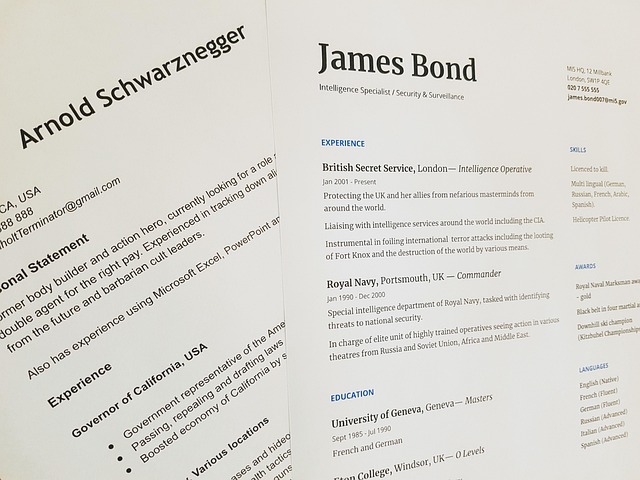Begin Your Career in Security in Rwanda: Key Steps and Job Opportunities
Rwanda’s growing infrastructure and investment in public and private sectors have led to a steady demand for trained and reliable security personnel. For those looking to enter a stable and respected field, the security industry offers real opportunities, even for first-time job seekers. In this guide, you’ll discover what roles are available in Rwanda’s security sector, what qualifications and skills are most valued, and how to successfully apply for these jobs. Whether you're aiming to work in retail security, event protection, or as a private guard, this article provides clear guidance to help you take the first step toward a promising career.

What are the most in-demand security roles in Rwanda today?
The security landscape in Rwanda is diverse, with opportunities spanning various sectors. Some of the most sought-after positions include:
-
Private Security Guards: These professionals are in high demand for residential complexes, commercial buildings, and corporate offices.
-
Event Security Personnel: With Rwanda’s growing tourism and conference industry, event security has become a crucial field.
-
Hotel and Hospitality Security: As tourism increases, hotels and resorts require skilled security staff to ensure guest safety.
-
Retail Security Officers: Shopping centers and stores across Rwanda are continually seeking vigilant security professionals.
-
Corporate Security Managers: Large companies and multinational corporations often hire security managers to oversee their overall security strategies.
What qualifications do I need for a security job in Rwanda?
While specific requirements may vary depending on the role and employer, there are some general qualifications that can boost your chances of securing a security job in Rwanda:
-
Education: A high school diploma is typically the minimum requirement. For management positions, a bachelor’s degree in criminal justice, security management, or a related field can be advantageous.
-
Physical Fitness: Many security roles require a certain level of physical fitness and the ability to stand for long periods.
-
Clean Criminal Record: A background check is standard for most security positions.
-
Language Skills: Proficiency in Kinyarwanda and English is often required, with French being an added advantage.
What key skills are employers looking for in security personnel?
Employers in Rwanda’s security sector value a combination of hard and soft skills. Some of the most important include:
-
Attention to Detail: The ability to notice and respond to potential security threats quickly.
-
Communication Skills: Clear and effective communication is crucial in security roles.
-
Crisis Management: Being able to remain calm and act decisively in emergency situations.
-
Technical Proficiency: Familiarity with security systems, surveillance equipment, and relevant software.
-
Customer Service: Many security roles involve interacting with the public, making a professional and courteous demeanor essential.
Are there any specific certifications that can enhance my employability?
While not always mandatory, certain certifications can significantly improve your job prospects in Rwanda’s security industry:
-
Basic Security Training Certificate: Often offered by recognized security companies or institutions.
-
First Aid and CPR Certification: Demonstrates your ability to respond to medical emergencies.
-
Fire Safety Training: Valuable for roles in building security or event management.
-
Crowd Control Certification: Particularly useful for those interested in event security.
-
Defensive Driving Certification: Important for roles that may involve transporting valuable goods or VIPs.
Where can I find security job listings in Rwanda?
To find security job opportunities in Rwanda, consider the following resources:
-
Online Job Portals: Websites like JobinRwanda, Igihe Jobs, and LinkedIn often list security positions.
-
Company Websites: Large security firms operating in Rwanda frequently post job openings on their official websites.
-
Government Job Boards: The Rwanda National Police and other government agencies occasionally advertise security-related positions.
-
Networking Events: Attend industry conferences and job fairs to connect with potential employers.
-
Local Newspapers: Traditional print media still plays a role in job advertising in Rwanda.
How can I make my application stand out to potential employers?
To increase your chances of landing a security job in Rwanda, consider these tips:
-
Tailor your resume to highlight relevant skills and experiences.
-
Include any volunteer work or community involvement that demonstrates your commitment to public safety.
-
Prepare for interviews by researching the company and practicing common security scenario questions.
-
Consider gaining experience through internships or entry-level positions to build your professional network.
-
Stay informed about current security trends and challenges in Rwanda to showcase your industry knowledge during interviews.
While specific salary information for security jobs in Rwanda can vary widely depending on the role, experience, and employer, here’s a general overview of potential earnings in the sector:
| Position | Experience Level | Estimated Monthly Salary Range (RWF) |
|---|---|---|
| Entry-level Security Guard | 0-2 years | 80,000 - 150,000 |
| Experienced Security Guard | 3-5 years | 150,000 - 250,000 |
| Security Supervisor | 5+ years | 250,000 - 400,000 |
| Security Manager | 7+ years | 400,000 - 800,000 |
| Corporate Security Director | 10+ years | 800,000 - 1,500,000+ |
Prices, rates, or cost estimates mentioned in this article are based on the latest available information but may change over time. Independent research is advised before making financial decisions.
Embarking on a career in security in Rwanda offers stable employment prospects and the opportunity to contribute to the safety and well-being of your community. By focusing on developing the right skills, obtaining relevant certifications, and strategically approaching your job search, you can position yourself for success in this growing industry. Remember that persistence and continuous learning are key to advancing in the security field, as the landscape of safety and protection evolves with new technologies and challenges.
The shared information of this article is up-to-date as of the publishing date. For more up-to-date information, please conduct your own research.






